#bsd is paint and misery and suffering
Text
wungo wednesday guys
i’m not ok. im very not ok. this is gonna kill me
spoilers for bsd s5 and maybe 110 but fuck knows wats happening next week
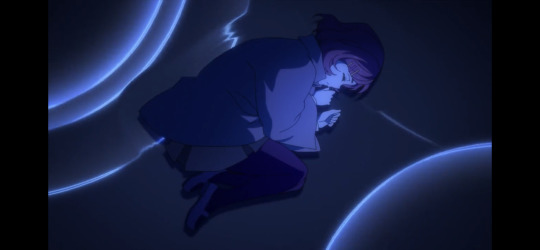
AYA BABY NO

SCREW UR BIO DAD HE CAN GO FUCK HIMSELF IN HELL. GO LIVE W KUNIKIDA AND BRAM

AYYAAAAAAAAAA. she’s my child my kid sister if something bad happens to her i will and i am not joking murder-
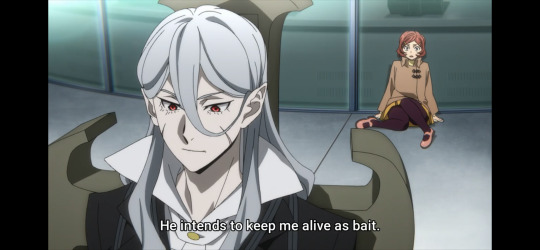
nsjsjsjs BRAM MY BOI PROTECT UR DAUGHTER. ILY BOTH TOO MUCH SISIIAJEHJQJSJSJD
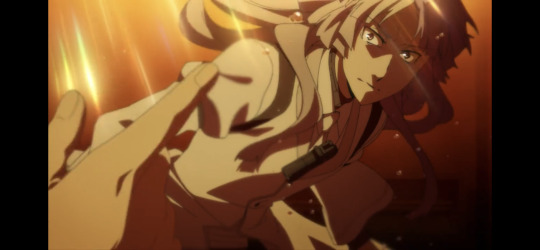
omg sigma he’s beautiful
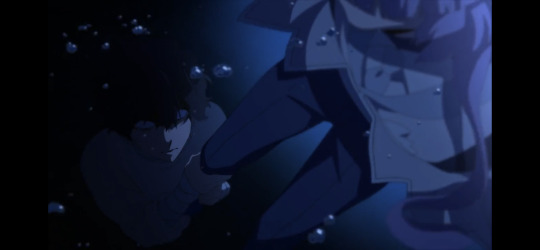
SIGMA RUN RUN RUN THATS A DEMON FROM HELL DONT LET HIM TOUCH U MY GODS DAZ WHAT DID BONES DO TO U
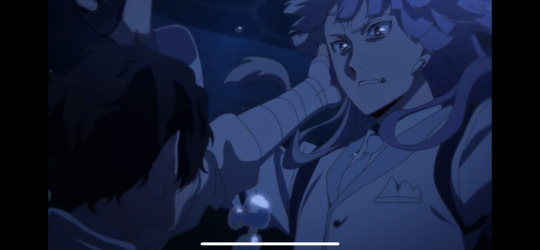
ok daz has a thing for cupping ppls cheeks. i will not eleborate

THIMBS UP????? WAIT TILL A GLOCK IS AT UR HEAD U STUPID BASTARD PEICE OF SHI-
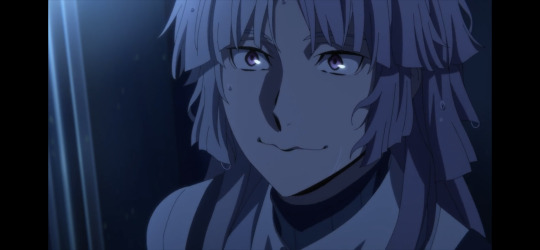
i’m g the one time sigma can b happy 😭😭 he deserve the world wksjdndhd
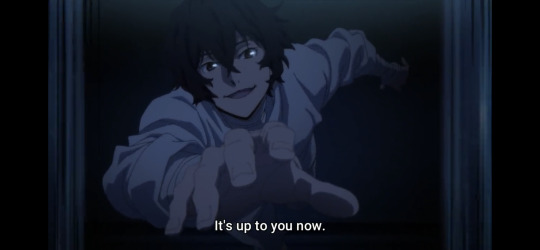
BITCH. U CRAZY BITCH GET OUT IF HERE W UR DUMBASS ILL LEAVE THE REST TO U GO FACE UR RESPONSIBILITIES U LAZY ASS SACK OF SHIT BEFORE ME AND KUNIKIDA COME BEAT UR ASS

fuck. get out. i’m not crying u r
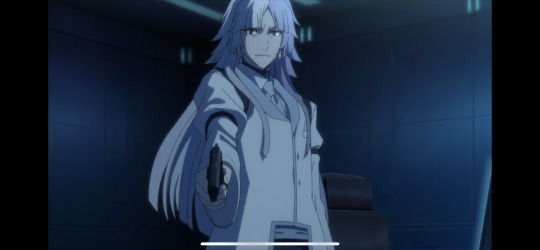
BOI U TELL HIM SHOOT HIS ANEMIC ASS. bro sigmas trying his best and it shows and i luv him with all my heart omfg
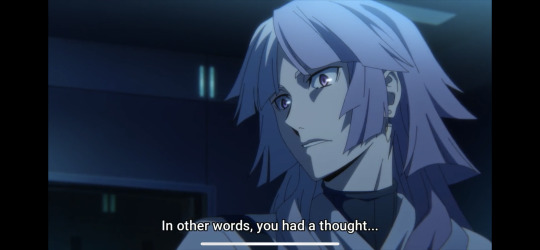
omg my boi
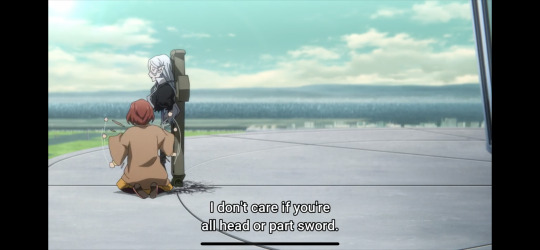
NDJDJDJS AYA YES. bother ur father until he does smth yes girl go go go go slay save the world i believe
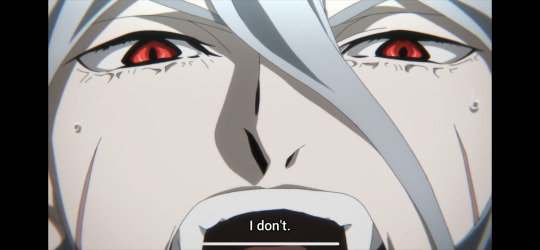
oh but u care abt u daughter don’t u. cmon u can’t deny it. ayas ur daughter and there’s nothing u can do abt it
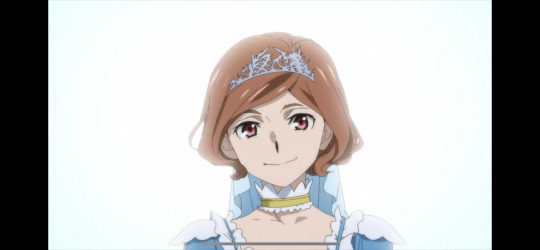
wait i didn’t capture it but she’s says father. so if it’s confirmed that aya is some reincarnation of brams daughter. good to have confirmation
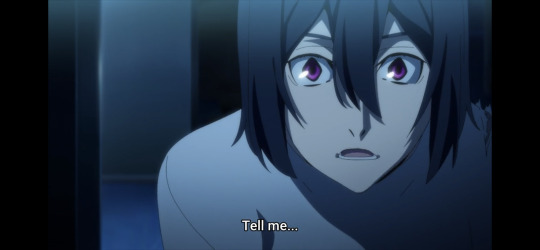
DJDJDJ HE LOOKS SO BABYGIRL. and the way his voice went up omg. fedya baby y r u so fake ily
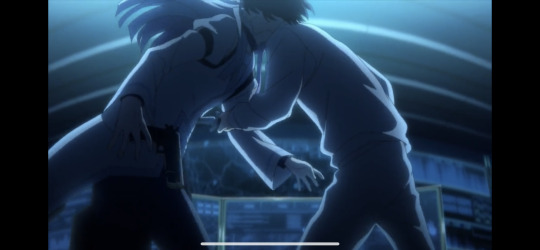
WHY CANT MY SILLIES COEXIST DAMMIT. CMON PLZ JUS LET THME BE GRUMPY COWORKERS NOT STABBING EACH OTHER
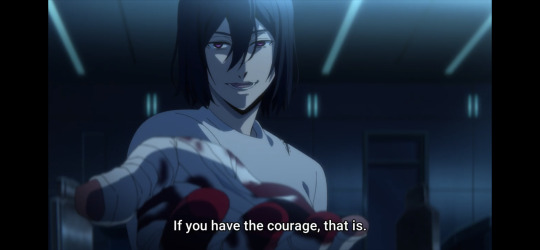
yes i would love to take ibuprofen w u rn i rlly need it

FATHER DAUGHTER IN COOL LIGHTING SJSJDBXBS i’m so normal abt them wdym
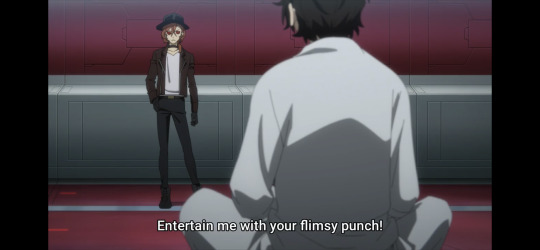
oh hi chuu i messed u. plz come back i need a happy ending i beg
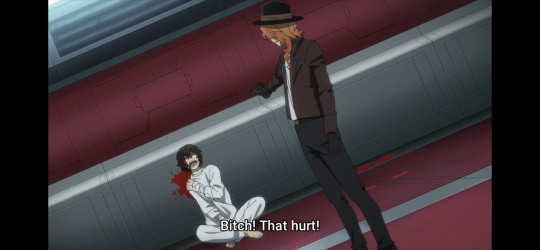
ah yes daz being the ass as usual. i’ll let it pass this time tho.

yes the power of friendship will never go wrong skin manifest it bsd magical girls and then they beat fukichis ass
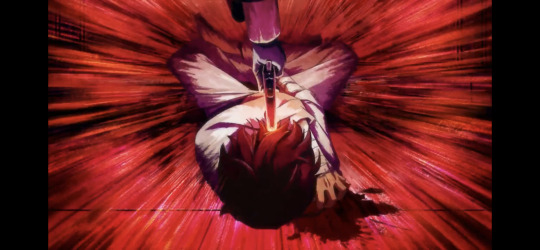
AAAKKFJDJDJD NOOOO DAZ
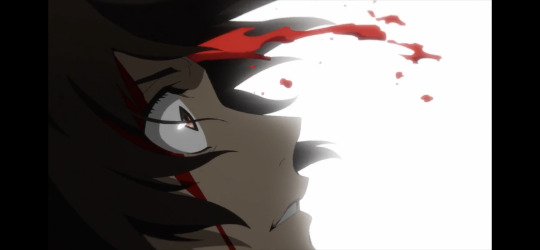
birch i hate u sm come back to me

bones where r the eyes don’t leave those out u cowards

oh nvm that’s my sleep paralysis demon
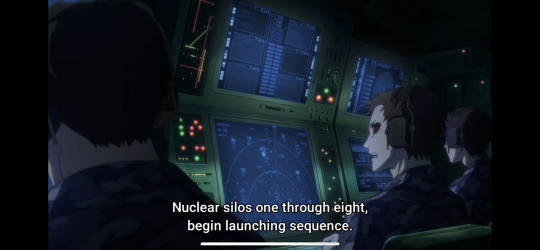
ADAM. VERLAINE. WELLS. SOMEONE. SHOW UP AND TANK THE DAMN NUKE PLZZZZZZZZ

BRAM
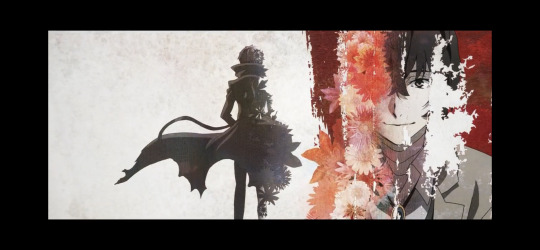
it’s red for his death 😭😭😭
well. that was a trip. idk what’s happening next week but bones better not fuck it up.
and that’s a wrap from ur tired delulu very upset abt 110 hostess
have a bsd day folks
#that’s not a good thing#bsd is paint and misery and suffering#bsd#bungou stray dogs#bram bsd#aya bsd#bsd fyodor#bsd spoilers#bsd dazai#bsd sigma#bsd bram#bsd 109#bsd 110#bsd chuuya#bsd season 5#dahostcallednight
40 notes
·
View notes
Note
hey, can you share your thoughts and opinions on dazai osamu's no longer human?(just the book and not in connection with bsd) i read it, i liked it, but i couldnt really relate to it. so im wondering if i should read the setting sun or not. what do you think abt this book?

I don’t think books really need to be relatable to be impactful, but context can help you understand it. In general my advice is the best way to understand a book is to read more books like it. Always, read more books.
Sure, I can write a repsonse to the text though. The book, not the anime. (Ignore the picture of Dazai, he’s just there to look cute.)
The biggest and most important idea in No Longer Human (Ningen Shikakku). The most literal translation of the title being (人間失格) "Disqualified From Being Human. I bring this up, because use of the character in the title has specific meaning.
人 (hito) : human, person 人間 (ningen): human Generally speaking, 人 is used for people, while 人間 is used for humans as a taxonomic classification.
Much like English, the fact that a person is a human is usually a given, because in our world, we call those who are humane “people,” and only humans can be humane. Just like you wouldn’t usually count humans with “three humans” and say “three people” instead, the usual way to count three humans in Japanese would also be 三人 instead of 三人間. “Human society” is 人間社会, etc.
Or to shorten 人 (hito) : human, person 人間 (ningen): human, biological.
So, there’s an extra nuannce there in the translation. The title of the book uses “ningen” as in the sense of taxonomical classification. So, it’s like saying “disqualified from being considered as a part of the human species.”
I go this far in my intro because most consider Dazai’s work to be a response to Dostoevsky’s Crime and Punishment, (he name drops both Dostoevsky and the novel itself). Both of these novels portray society as a whole as an antagonistic force to one individual, who is considered an outsider to that same society. There’s a lot of similarities between the protagonists, both Raksolnikov and Yozo are terminally ill, show signs of mental illness, and both are characters who show incredible self-awareness and moments of self reflection while at the same time being unable to connect to the feelings or identify with the people around them in any healthy way.
To connect back to my little rant on the translation of the title though, what could disqualify a person from being considered a human being? Well, they could commit a crime for instance. Then they’d be classified as a crimminal.
Both protagonists of both novels are crimminals in a sense. However, that’s about where the similarities end. NLH is centrally about the main characters egoism. Society matters so little in NLH, society is just something that hangs ominously in the background to the outsider.
Now there’s another novel by Dostoevsky that similiarly is recorded in a journal format, and is mainly about the main characters Ego. Notes from Underground is considered to be one of Dos’s first existentialist novels. Existentialism (to oversimplify) in a sense of what does existing in this world mean?
That’s why I say the central conflict is not with society itself, but rather within the character’s own head. The outsiders of society only exist within their own heads. Their main challenge is not to grapple with society, morality and law like Raskolnikov but rather to figure out what is inside their own heads and what they live for.
Which is why the protagonists of both novels are terrible egoists. Their main personality trait is their egocentrism, or rather their inability or unwillingness to try to see or understand the feelings or experiences of others. They are first person narrators who only see the world from their own point of view, but they are not objectve narrators. The only thing they can see, the only thing they can relate to, the only thing they can convey is their feelings to the reader.
F. Scott Fitzgerald writes a similiar novel from a similiar point of view in This Side of Paraidse, which shows the journey of one young man born into a rich family who grows up to not only lose the love of his life, but also to squander all his fortunes at the end of the story. However, Fitzgerald drops all pretense on what the story is about. The chapter titles are things like, the romantic egoist, the egoist considers, narcissus off duty, all the way to the egoist becomes a personage.
The book ends like this.
He stretched out his arms to the crystalline, radiant sky.
“I know myself,” he cried, “but that is all.”
It’s an egoists journey to developing a personality. To way oversimplify again, ego is yourself that exists in your own head, personage is what you show to others. At the end of This Side of Paradise, the main character gains himself, while at the end of NLH the protagonist loses himself. It’s the same journey but in reverse, it’s a net loss, it’s tragic.
NLH, This Side of Paradise, and Notes from the Underground are all about egoists who are aware of their own feelings, but aren’t aware of the feelings of others. They’re all ridiculously self absorbed individuals. That’s actually, like, the unreliable narrator trick of the novel.
Yozo is sympathetic yes, he’s an outsider to society, but at the same time Yozo is not the helpless, miserable victim he portrays himself as. He is not the victim to a cruel society, one he comes from a place of privilege and two he becomes a perpetrator. Hence, the whole... crime and punishment allusions. It’s this added complexity to Yozo that’s what makes the book as brilliant as it is. Yozo is someone who is both victim and perpetrator, but he only sees himself as a victim and the story he tells paints him exclusively as a victim.
But Yozo’s central problem isn’t society its himself. His conflict and greatest obstacle is always his own ego. The reason we read the book biographically, is because we see him grow up, or rather fail to grow up. As a kid he is sympathetic, as an adult he’s a pretty serial user of people.
Yozo constantly asks for sympathy, but at the same time he’s not really one to sympathize with others. When he tries to commit suicide with a woman, he reports these events with no remorse at all.
I removed my coat andput it in the same spot.
We entered the water together.
She died. I was saved.
He seems real broken up about it.
That’s also a pattern that repeats again and again with Yozo. If you want to see the real nature of Yozo’s character you should see how he treats both women and children. They exist to make him happy, to soothe his misery, and when they don’t he leaves them.
Like, out of context. What does this sound like.
What a holy thing uncorrupted virginity is, I thought.
I had never slept with a virgin, a girl younger than myself. I’d marry her.
The few times we do meet outside characters we see that Yozo is someone referred to as a crimminal, but refers to himself as a victim.
“Don’t be cheeky now, I for one have never been tied up like a common crimminal the way you have.”
I was taken aback. Horiki at heart did not treat me like a fully human being.
If you read No Longer Human as a response to Crime and Punishment, you could even read the many women that Yozo falls into flings with and then promptly abandons as a response to Raskolnikov and Sonya. For Yozo, each woman he meets is his Sonya, they are meant to redeem him and bring him peace, and whn they don’t he leaves. Yozo someone missing the point that, Raskolnikov loved Sonya because he sympathized with her circumstances and suffering while Yozo really only ever cares about his own suffering.
To bring the discussion back to Notes from the Underground. It’s a story divided into two parts, that really doesn’t work without the second part of the story. In the first part, as we are just fed the main character’s thoughts he looks like some kind of revolutionary philosopher. Then in the second we follow the character though a day in his life and he’s just sort of... socially awkward. He’s not some brilliant thinker, he’s just an outsider who can’t connect with others, like Yozo. The second part is necessary to underwrite the first because in the first part of the journal he looks like a champion, and in the second he’s just pathetic. He’s just some guy. Notes from the Underground also has one of my favorite lines in all of fiction.
"They won't let me ... I can't be good!" I managed to articulate; then I went to the sofa, fell on it face downwards, and sobbed on it for a quarter of an hour in genuine hysterics. She came close to me, put her arms round me and stayed motionless in that position.
The protagonist encounters a young prostitute name Liza, he tries to save her at first, but then turns around and starts to treat her terribly and has a mental breakdown in front of her that ends in this line. She finds him pitiable, and comforts him in that moment.
However, after this moment of comfort he then he goes back to treating her terribly once more. He yells at her, and she grows tired of him. He pays her and she leaves and that’s the end of that relationship.
See it’s a moment that’s simultaneously, a moment of human connection, but also it shows how the protagonist regards other people and why he can’t connect to them. If you only use other people to comfort your loneliness, you’re going to end up alone either way. The same way the Narrator uses Liza, Yozo chronically uses women.
However, at the same time.
“They won’t let me... I can’t be good.”
Is what I consider the most striking lines in all of fiction. It is both an avoidance or responsibility, and at the same time an utterance of the baisc human desire to be good. It's always everyone else's fault, the problem is with other people. Yet both Narrator, and Yozo want to be good people, they want to connect with others.
Yozo and the Narrator are crimminals. They are bad people. (A person who has committed a crime isn’t necessarily a bad person but..) However, being a crimminal does not disqualify you as a human being. They are still people who are suffering. The secondary goal of a novel like Crime and Punishment is to show St. Petersburg as a city where everyone is human, and everyone suffers, good and bad people alike. Yozo and the Narrator are miserable, and there’s humanity in that misery. You don’t have to even connect to their feelings, isn’t it bad to see a person suffering? Doesn’t that elicit an emotional response because nobody wants to see other people suffering and in pain. That’s the basic humanity in these characters. Yozo and Narrator aren’t inhuman. They’re just like... normal people. They are anxious, avoidant. They are terminally insecure. They’re socially awkward. They understand themselves better than other people. Those are all just normal human sentiments shared by everyone, it’s just Yozo and Narrator are so egocentric they act like they’re the only people in the world.
Yet the same, just like the moment Liza sympathized with a man who treated her terribly and only saw her as a prostitute, people still sympathize with miserable people and want to ease the suffering of others. That’s why Dazai writes stories for miserable people.
I am writing a tired story for young readers,
not because I want to be different,
or because I am unconcerned with young readers’ tastes.
I write it rather because I know it will please them.
Young readers are tired and old themselves these days,
and my story can bring them no discomfort and no surprises.
It is a story for those who have lost hope.
(Osamu Dazai, Of Women)
#Anonymous#osamu dazai#no longer human#fyodor dostoevsky#literature analysis#crime and punishment#notes from the underground#this side of paradise#thinking is hard#don't ask me to think for the rest of the day my head hurts#f. scott fitzgerald#to answer your question anon#you should be able to read the settting sun#justified#it's an entirely different novel#it's not about#this one guy's ego#it's written perspective of a woman in the post war japan#that one is about society#it's about the transition period#and people reinventing themselves#i mean you might not get it because you were not alive in japan in the 1940s but#It's an entirely different book#try reading dazai's schoolgirl#or pandora's box#they're much shorter.#spooky speaks
112 notes
·
View notes